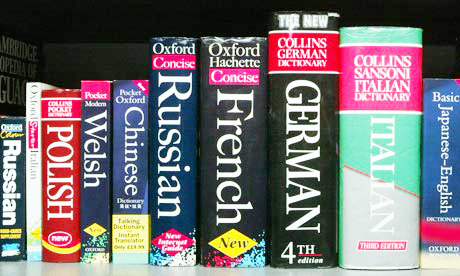Simar Jeet Singh Bhatia
In the modern world, with rising levels of education and sophistication as well as increased expousure to the west, people are turning more and more cosmopolitan. This is most apparent not only in the adoption of Western technology but also western styles of living and fashions. These adoptions are very obvious and are also on a large scale. But there is a small academic minority too, that is getting exposed to another aspect of cosmopolitanism-the study of foreign languages, literatures and cultures.
However, the million dollar question is-what possible thrills the study of a foreign language hold for young generation of today ? What would one gain by mastering a foreign language after all that toil and diligence ?
The French is most popular European language. German comes only 2nd followed by Russian. Last come Spanish and Italian. Oriental languages like Chinese and Japanese, although studied by some, are not very popular & study facilities too are limited.
Truly speaking, if you wish to have a fling at a foreign language, you are virtually embarking on an adventure of discovery. It literally opens up a whole new world.
To the beginner, the choice of the language itself is a problem because you can never be sure about the language you really have a flair for.
If you make the wrong choice you might very well end up as a drop out with the explanation’’,It is too tough for me’’ thereby wasting a lot of time, effort and money.
Which language is easy to master and which is difficult, is really a matter of opinion and there can be no generalisation on this point. However, European languages rule out at least one great stumbling block. You don’t have to handle a strange script as all the languages use the Roman script or alphabet. This would not be the case if you went in for Russian whose script is very difficult or Japanese and Chinese, which, needless to say, are still more difficult.
The general opinion of linguists is that French grammer is easiest to master as it comes very close to that of English. Another advantage with French is that many words are very close to English words which are actually derived from French and both these two languages can also be treated as offshoots of the same tongue-Latin. This enables rich build up of a rich vocabulary.
However, the pronunciation of French, language is very tough unless you’ve a flair, for a highly nasal pronunciation and also for mute endings.
As far as German is concerned, here pronunciation is not much of a problem because the words are pronounced exactly as they are written. However the grammar poses difficulty as it varies tremendously from that of English.
Russian, perhaps is one of the most difficult among the currently popular foreign languages. The main difficulty comes from the Russian alphabet, which is a separate script in itself. Other aspects of the language like grammar and pronunciation are also very tough as they have no affinity at all with English.
It is always advisable to go in for a foreign language course outside your college at some specialised institute. A foreign language should never be taken as an optional language at undergraduate level as it involves risk of failure in the Exams. That can play havoc with your academic life.
The specialised institutions have audio-visual aids, like the linguaphone, that help the students to pick up the pronunciation and accent almost as perfectly as a native. Of course, there may be some self study correspondence courses, offered by some institutions. But these are not without some disadvantages. Firstly, you will have to rely mostly on yourself, although you also get written guidance from the institute. Secondly, this way, you are really learning the language is a theoretical text bookish way which clearly can not be expected to give you a very high degree of proficiency, particularly with speech.
However, if you are really keen on mastering the language, you can spend a little extra money and get yourself a study-aid like the linguaphone, that comes with DVD’s, prepared by natives of the language in their own natural accent.
ADVANTAGES GALORE :
After a language is mastered, the study of the literature and culture of the country can be very exciting. It is different reading about – the people, their customs foods, dresses and other things in their own native language from doing so in English.
With knowledge of a foreign language, one can even make pen-friends abroad. This opens up yet another field, rich in fun and experiences.
And for those who might plan to start an industrial venture, or something of that kind, with foreign collaboration, this often turns out to be a great help as it might be easier this way to get technical aid or a market for your product.
This is more so because in most European and oriental countries, English is not very popular.
Indeed, there are opportunities, although limited, also to make a career out of your knowledge of the foreign language. Becoming a professional would mean getting a break in fields, like teaching, translating and interpeting, which, however demand very high standard of proficiency.


